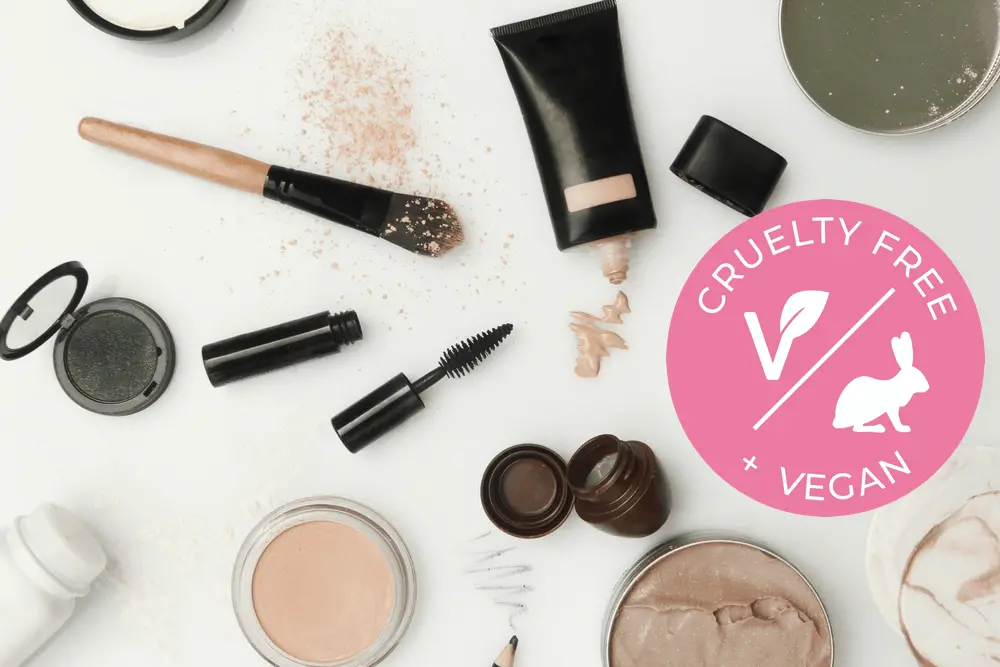In today’s culture, two terms that frequently arise in conversations regarding consumerism are cruelty-free and vegan. Many companies use these terms interchangeably, often leading consumers to believe that these two different labels mean the same thing.
Although vegan and cruelty-free are often used interchangeably, they are not the same. Vegan products don’t use ingredients sourced from animals. While they often don’t test on animals either, accidental vegan products might. If a product is purely cruelty-free, it means that it may still use animals or their byproducts ethically and humanely. But no animal testing is done.
Both cruelty-free products and vegan products have aspects that are beneficial to consumers’ health and the natural environment's wellbeing, but the terms do not mean the same thing. Read on to find out the difference between cruelty-free products and vegan products.
Are Cruelty-Free Products and Vegan Products the Same?
The term cruelty-free really only means one thing: if a product is classified as cruelty-free, it has not been tested on animals before being sold. In comparison, vegan products use absolutely no animals or their byproducts.
If a company makes vegan products, it should never test any of its products on animals. Any animal testing automatically means the product is no longer vegan. Unfortunately, certain companies have been caught advertising products as vegan when they have been tested on animals.
It is crucial to check out the products you like to see if they authentically represent your values and ethics. To see how products can be a mixture of cruelty-free, vegan, or both, take a look at some examples of the following brands:
Brand | Cruelty-Free | Vegan |
|---|---|---|
Burt's Bees | Yes | No |
e.l.f Cosmetics | Yes | Yes |
Dove | Yes | No |
Lush | Yes | No |
Schmidt's Deodorant | Yes | Yes |
How are Cruelty-Free Products and Vegan Products Beneficial?
Both cruelty-free products and vegan products have many benefits. These products not only benefit the consumer who buys and uses them, but they also protect wildlife and help sustain the well-being of the world we live in.
Cruelty-Free Product Benefits
Cruelty-free products support the safety and well-being of the animals that live in this world by not using them as test models for products.
When a company isn’t cruelty-free, they often house these animals in places like laboratories, factories, and slaughterhouses. These animals live in extremely inhumane conditions.
In addition to the inhumane treatment, these animals are also subjected to being force-fed or rubbed with products that contain harsh chemicals and toxins. These tests frequently leave the animals in pain or may even cause death.
Along with supporting animals' safety and well-being, using products that are cruelty-free benefits consumers personally. Cruelty-free products are frequently tested on human volunteers, guaranteeing their safety for widespread consumption. Typically, you will find that cruelty-free products are much healthier and safer alternatives than those that are not.
It has been proven countless times that animal testing is no longer necessary. Not only are the results from animal testing a poor indicator for the safety of a product for human use, but there are many more effective methods that don’t use animals at all.
If you want to see all the facts, you can find them here: Are Cruelty-Free Products Safe?
Vegan Product Benefits
A commonly accepted belief by many scientists today is that the world is suffering due to climate change. Environmental hazards, such as gas emissions from public transportation and the pollution of our air and water are all contributing to the problem.
One of the best ways to help fight this cause is by using and consuming vegan products.
When you use non-vegan products, it’s guaranteed that animals are being produced in high numbers and killed for our benefit. The factories and slaughterhouses used to house the animals release harmful toxins into the environment.
According to sciencemag.org, in a study conducted in recent years by the National Academy of Sciences, it was found that “a nation of 320 million vegans would reduce greenhouse gas emissions from agriculture by some 28%, far less than the amount now produced by the livestock industry.”
It’s not just the farming industry that has a terrible impact on the environment. People are also over-hunting and utilizing wild resources too. This not only endangers entire species but also dramatically affects the natural environments these species live in, which rely on these animals for its thriving.
Non-vegan products often harm our environments and our bodies. These products are often filled with harsh chemicals and synthetically made ingredients. Opting for vegan products means the products contain all-natural ingredients and are safe for the average consumer to use.
Benefits of Products that are Both Cruelty-Free and Vegan
Using products that are classified as cruelty-free and vegan have countless benefits. They:
How to Know if a Product is Cruelty-Free, Vegan, or Both
Unfortunately, some companies lead consumers to believe they are vegan or cruelty-free when, in reality, they are not. Currently, it is not illegal for companies to do so. This can make it rather difficult for the consumer to know if they are genuinely cruelty-free or vegan products.
How to locate cruelty-free products:
How to locate vegan products:
Non-vegan products are made up of animal-derived substances. Most people don’t know what these substances contain because manufacturers use terms on their product labels that aren’t used in everyday conversation.
If most people knew what these ingredients are or where they are sourced, we might think more carefully about selecting cruelty-free options. Here are a few of the most common ingredients you’ll see on product labels that are made from animal-derived substances:
Are all Cruelty-Free Products Also Vegan?
Although the terms “cruelty-free” and “vegan” are often used interchangeably, they are not the same. Both products are similar in that they aim to stop animal abuse, but they mean two different things.
If you’re considering going cruelty-free, vegan, or both, there is quite a bit to learn at first, but as you can see from the numerous benefits it has on our earth, our animals, and the health of us as consumers, it’s often well worth it in the end.


